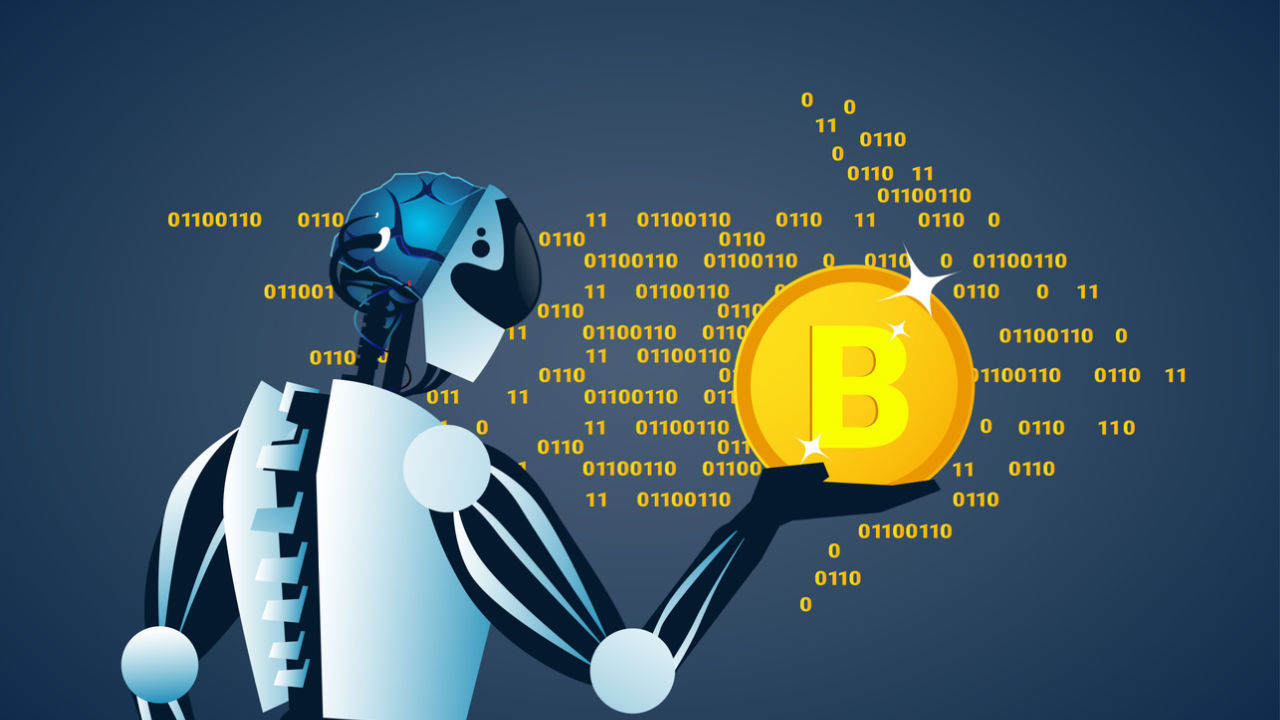Top 10 Programming Languages for Blockchain Development – Cryptopolitan

Blockchain is a revolutionary technology that has taken the world by storm. Developers use it to create secure, distributed systems in many industries, and it is known for software development. But with its popularity, it needs programmers with the right skills to build successful projects – here are the top 10 programming languages used in blockchain development.
Solidity
Solidity is one of the most trusted and sought-after Blockchain-based programming languages used by developers worldwide. Whether you are new to development or already an experienced professional, the language provides a comfortable opportunity to master it.
Designed to run contracts on the Ethereum Virtual Machine (EVM) with syntax inspired by Java, C++ and PowerShell, this programming language was proposed by Gavin Wood in 2014 and introduced to users by Vitalik Buterin, who developed Ethereum. Its ease of use and stability make Solidity a must-have skill for any aspiring Blockchain developer.
Benefits
- Solidity makes it possible to create powerful decentralized applications (DApps) quickly and securely.
- It is an open source language which makes it easily accessible to everyone.
- Its features make it an excellent platform for smart contract development, allowing developers to write code to deploy across multiple networks without modification.
- It also supports static analysis, which helps detect vulnerabilities in code.
- The Solidity language makes it easy to write and deploy applications on the Ethereum network.
Cons
- The language is relatively new and is still in the early stages of development.
- Debugging code written in Solidity can be difficult as it may need more testing.
- Developers must be aware of certain security risks associated with writing smart contracts on Ethereum.
- Sometimes it is difficult to find good documentation and tutorials for Solidity.
Golang
Go, otherwise known as Golang, is a programming language developed by Google in 2009. It has quickly become one of the most popular languages for developing blockchain applications due to its simplicity and relative speed compared to other languages, such as Java and C++. Additionally, the syntax is easy to learn, making it an excellent choice for developers looking to get into blockchain development.
Benefits
- Go is considered one of the most secure programming languages as it has built-in robust security measures such as access control and input validation.
- It allows for rapid application development as it compiles quickly and is easy to debug.
- It supports concurrent programming so developers can easily build distributed systems.
- Go has an extensive library of packages for all blockchain-related tasks, such as cryptography, consensus protocols, and networking.
Cons
- Go’s syntax can be challenging to learn and understand, which reduces development time.
- A virtual machine is needed to deploy applications on different platforms.
- It is not the best choice for developing complex applications as it is less powerful or versatile than other languages such as Java or C++.
Python
Python is one of the most popular programming languages in the world, and its easy-to-learn syntax makes it an excellent choice for getting started with blockchain development. It has been used extensively in creating decentralized applications (DApps) and smart contracts for projects such as Ethereum, Hyperledger, and Ripple, among many others.
Benefits
- Python is a very versatile language and has several applications.
- It has extensive libraries, making development faster and easier.
- The syntax is simple, with no complex structures or concepts to learn.
- It supports object-oriented programming, which makes it easy to develop complex projects in a short time.
Cons
- Python is slower than other languages, such as Go or C++, which makes it less suitable for computationally intensive tasks.
- The lack of static typing can lead to errors that are difficult to detect during development.
- Some developers find the syntax too simple and lacks features, making it unsuitable for more complex projects.
- Python is less secure compared to other languages, such as Go and C++, which can lead to security issues when developing blockchain applications.
C/C++
C/C++ is a language that has been around since the 1970s, but has remained popular due to its robustness. As a result, it is the preferred choice for many developers who want to build powerful applications on the blockchain, such as wallets and exchanges.
Benefits
- It gives developers low-level control over their code, making performance optimization possible.
- It supports static typing, which makes it easier to write error-free code.
- It is highly secure, making it the perfect choice for applications that require high levels of security, such as wallets and exchanges.
- It has an extensive library of packages and resources, making development faster and easier.
Cons
- C/C++ can be challenging to learn due to its complexity and lack of documentation.
- It does not support garbage collection, which makes the code difficult to maintain over time.
- The syntax can be challenging for new developers to understand, making it unsuitable for those just starting out in blockchain development.
- It is less versatile than other languages, such as Python, which makes it less suitable for specific projects.
JavaScript (JS)
As one of the most popular web programming languages, JS offers developers many opportunities to build blockchain-based applications. Additionally, its popularity makes it easy to find tutorials and resources online, making it an excellent choice for those just getting started with blockchain development.
Benefits
- It is an interpreted language, which makes it easy to write code in a short time.
- It has extensive libraries, making development faster and easier.
- The syntax is straightforward, which makes it suitable for those learning to code.
- It supports object-oriented programming, which makes it possible to develop complex projects without too much effort.
Cons
- JS can be slow compared to other languages such as C++ or Java, making it less suitable for computationally intensive tasks.
- The lack of static typing can lead to errors that are difficult to detect during development.
- The language is less secure than other languages, such as Go and C++, which can lead to security issues when developing blockchain applications.
- Some developers find the syntax too simple and lacks features, making it unsuitable for more complex projects.
- JS is less versatile than other languages, such as Python, which makes it less suitable for some projects.
Ruby
Ruby is an open source programming language that has gained popularity recently due to its flexibility and user-friendly syntax. It is an excellent choice for those who want to build blockchain applications that are user-friendly and easy to maintain.
Benefits
- It is a highly expressive language that makes writing code quickly and easily.
- It supports object-oriented programming, which makes it possible to develop complex projects without too much effort.
- The syntax is simple yet powerful, making it suitable for experienced and novice users.
- It has an extensive library of packages and resources, making development faster and easier.
Cons
- Ruby can be slow compared to other languages, such as C++ or Java, which makes it less suitable for computationally intensive tasks.
- The lack of static typing can lead to errors that are difficult to detect during development.
- The language is less secure than other languages, such as Go and C++, which can lead to security issues when developing blockchain applications.
- The language is less versatile than others, such as Python, which makes it less suitable for some projects.
- The language is less widespread than other programming languages, such as JavaScript, which makes it more difficult to find online tutorials and resources.
Simplicity
Simplicity is a relatively new programming language designed specifically for blockchain development. Its focus on simplicity and readability makes it an ideal choice for those just starting out in blockchain development.
Benefits
- It is designed specifically for blockchain development, making writing code more manageable and efficient.
- The syntax is simple yet powerful, making it suitable for experienced and novice users.
- It has extensive libraries, making development faster and easier.
- The language focuses on security that can help reduce the risk of common attack vectors.
Cons
- Simplicity has a smaller library than other languages, such as JavaScript or Python, which makes it less suitable for specific projects.
- The language is relatively new and less widely used than other programming languages, such as JavaScript, which makes it more difficult to find online tutorials and resources.
- Simplicity does not support object-oriented programming, which limits its ability to develop complex projects.
- The lack of static typing can lead to errors that are difficult to detect during development.
Ethereum Virtual Machine (EVM) bytecode
Ethereum Virtual Machine (EVM) bytecode is a low-level language used to write smart contracts on the Ethereum blockchain. It is more secure than other languages and gives developers more control over their code.
Benefits
- It is designed specifically for writing smart contracts, making it easier to write secure code.
- The syntax is simple yet powerful, making it suitable for experienced and novice users.
- It has an extensive library of packages and resources, making development faster and easier.
- The language provides greater control than programming languages such as JavaScript, and allows developers to create robust applications.
Cons
- EVM bytecode is less versatile than other languages, such as Python, which makes it less suitable for some projects.
- The language is less widespread than other programming languages, such as JavaScript, which makes it more difficult to find online tutorials and resources.
- EVM bytecode does not support object-oriented programming, which limits the ability to develop complex projects.
PHP
PHP is an open source language used to create dynamic web applications. It has a large community of developers and libraries, making it an ideal choice for those just getting started with blockchain development.
Benefits
- The design creates dynamic web applications, making writing code more manageable and efficient.
- The syntax is simple yet powerful, making it suitable for experienced and novice users.
- It has an extensive library of packages and resources, making development faster and easier.
- The language offers great scalability compared to other languages, such as JavaScript, allowing developers to scale their projects quickly as needed.
Cons
- PHP has a smaller library than other languages, such as JavaScript or Python, which makes it less suitable for some projects.
- The language is relatively old and can be slower than newer languages such as Go or Rust, which limits its use for building more advanced blockchain applications.
Conclusion
Developers can use many programming languages for blockchain applications. Each language has advantages and disadvantages, so it is important to choose the one that suits the needs of the project. It is necessary to compare the different programming languages.
Ultimately, the right language will depend on the needs of the project and the level of complexity you’re looking for; you can choose the best language for your blockchain project with careful consideration and research.
























